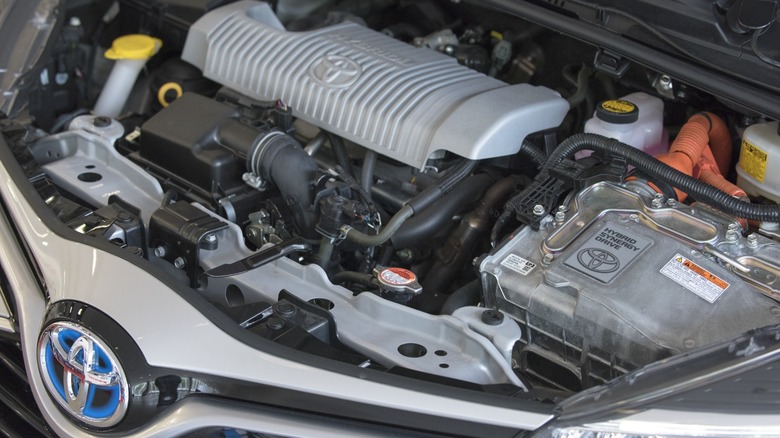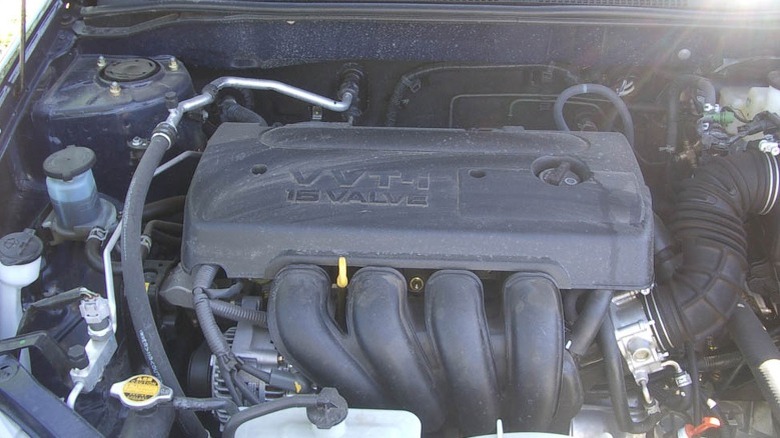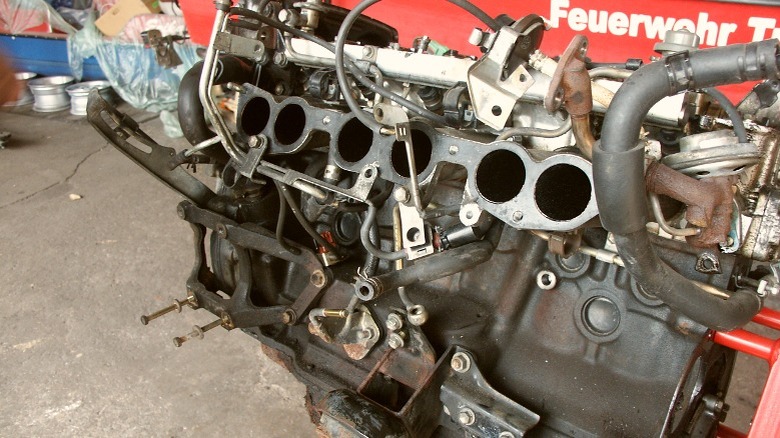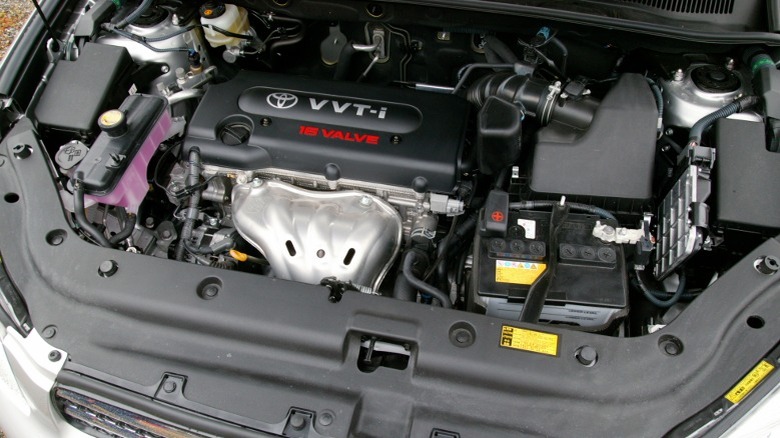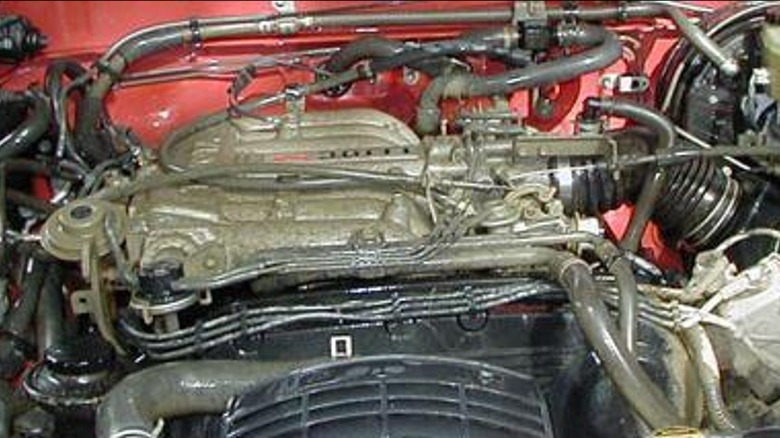4 Of The Least Reliable Engines Toyota Ever Made
Toyota's reputation for producing vehicles that stand the test of time has firmly positioned the brand as a leader in the automotive industry. The brand has a history of quality and endurance. Toyota cars are often the go-to choice for those prioritizing long-term value and dependability. However, not all Toyota models are infallible.
Since its inception in the late 1930s, Toyota has been on a continuous journey of engineering evolution, enhancing its engines with each successive generation. This dedication to progress is why many of the engines discussed here date back over a decade, with some originating from as early as the 1980s. Given their durability, it's not uncommon to encounter these older engines in today's used car market.
The cornerstone of Toyota's enduring success lies in the reliability of its engines. Renowned for their longevity, these engines are designed to potentially surpass hundreds of thousands of miles. Yet, not every Toyota engine is created equal. Despite the brand's overall reputation for reliability, some models rank lower on Toyota's scale of dependability, here are some.
4. 1ZZ-FE 1.8-liter inline-four engine
The 1ZZ-FE engine was in production for nearly 10 years, starting in 1998 and ending between 2007 and 2008. Toyota made this inline 4-cylinder engine for a wide variety of cars including the Corolla, Avensis, Matrix, and Celica, to name a popular few.
It boasted 120 to 140 horsepower and 122 to 126 lb-ft of torque. While it's not much to boast about, it got the job done in the cars that housed it.
The major issue with this engine was just how much oil it consumed. Just like most of Toyota's other oil-guzzling engines, we can trace the root problem to the pistons and piston rings. The pistons in the 1.8L 1ZZ-FE were small, and Toyota patched that with bigger rings. Of course, the bigger rings wore down and couldn't scrape out enough oil, meaning more oil got burned inside the combustion chamber. Toyota had to extend the warranty on many car models using this engine and addressed the issue in July 2005.
[Featured image by Milkmandan via Wikimedia Commons | Cropped and scaled | CC BY-SA 3.0]
3. 7M-GTE 3.0-liter turbocharged inline-six engine
This turbocharged inline-six engine is synonymous with the Toyota Supra MK3, the predecessor to the famous 2JZ engine of the Toyota Supra from the '90s. The 7M-GTE did 232 horsepower at 5,600 rpm with 240 lb-ft at 4,000 rpm. While these are good specs for the time, a couple of issues with the engine kept the MK3 from shining.
The biggest problem with the 7M-GTE is its head gasket. Right after Toyota finished creating this engine, the industry put a ban on asbestos in car production (due to its health risks). This forced Toyota to redesign a new head gasket quickly. Because of this rush, Toyota didn't do its due diligence with it, and the engine kept running into expensive head gasket issues.
It's worth mentioning that it's now easy to fix this head gasket issue. All you have to do is replace the head gasket with a metal one, change the head bolts to ARP ones, and replace the rod bearings. This should give you a far more reliable engine. If only Toyota had done this to the engine from the get-go.
[Featured image by Neodarkshadow via Wikimedia Commons | Cropped and scaled | CC BY-SA 3.0]
2. 2AZ-FE 2.4-liter inline-four engine
This engine was supposed to be an improvement to the 1AZ-FE but a replacement for the 2.2L 5S-FE, which was the pre-2000 Camry and Solara engine. The 2.4L 2AZ-FE was a compact aluminum block DOHC engine with 160 horsepower and 162 ib-ft of torque.
Production for the 2AZ-FE began in 2000 and ended in 2015. However, this engine is why the 2007 Camry is on the list of the most unreliable used Toyotas. That's because it was another oil-guzzling engine from Toyota. Cars with this engine were so notorious that it was half the reason the 2007 RAV4 got flagged as one of the most unreliable RAV4s of all time, according to Car Complaints. Since this engine was in many popular Toyota cars, it had to extend the warranty on various 2007 to 2013 Toyota models.
Now that the engine is older, you might also find that most cars with it leak oil. Oil leaks aren't unique to the 2AZ-FE, but with its age and its oil-drinking problem, a bit of neglect could cost a lot.
[Featured image by Tenmen-Gas via Wikimedia Commons | Cropped and scaled | CC BY-SA 3.0]
1. 3VZ-E 3.0-liter V6 engine
In 1987, Toyota produced the 3.0-liter V6 3VZ-E as part of the VZ engine family for its 4Runner, T100, and other pickup trucks. Toyota chose a 60-degree V shape for this engine, using a cast-iron cylinder block and aluminum cylinder head.
With its 2958cc displacement and SOHC valve system, the 3VZ-E did only 150 horsepower at 4,800 rpm and 180 lb-ft of torque at 3,400 rpm. Essentially, the engine was quite weak for the off-roading responsibility Toyota assigned it. However, these weak specs weren't the only reason for the 3VZ-E's failure. It also had five major faults: a head gasket leak, an easily worn timing belt, problematic starter contacts, an unreliable EGR system, and burnt exhaust valves.
Of all of these five problems, the most common was the head gasket problem, Toyota opted to remove asbestos head gasket sealants from their engines. But it didn't apply enough of the replacement molybdenum to save costs. This led to many cases of head gasket leaks, which forced Toyota to extend the warranty for vehicles with this engine. Issues like this one could also result in overheating and coolant levels dropping without any external leaks.
[Featured image by Ric17 via Wikimedia Commons | Cropped and scaled | CC BY-SA 3.0]
